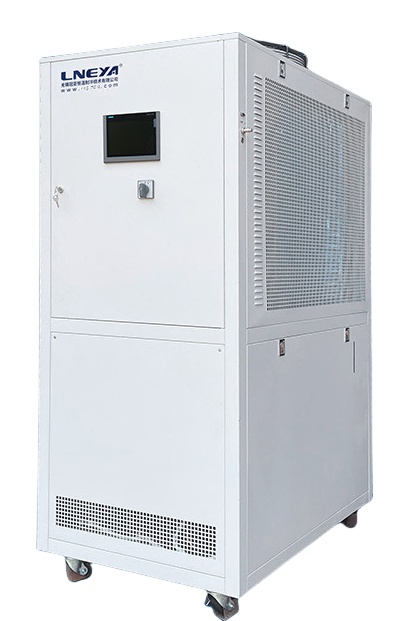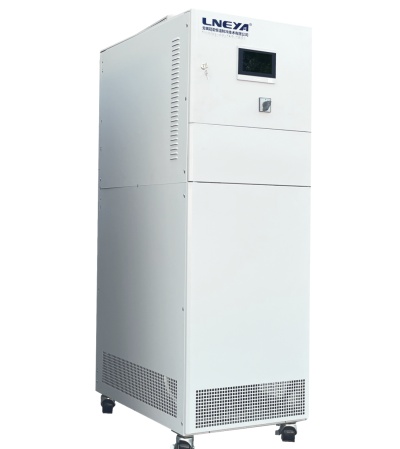ACHEMA 2024
4332024 ACHEMA Biochemical Technology Exhibition in Frankfurt, Germany ACHEMA 2024Germany Ahma Biochemical Technology ExhibitionJune 10-14, 2024Ludwig-Erhard-Anlage 1, Frankfurt, GermanyBooth number: 6.1-C55 ,
View detailsGet chiller related information TCU Air Cooled Chillers Recirculating Chiller Dynamic Temperature Control Systems 产品分类菜单
Chiller Manufacturers in Australia: Innovating for Efficiency and Sustainability
Australia’s chiller manufacturers are at the forefront of providing advanced cooling solutions for a variety of industries. These manufacturers offer a comprehensive range of chillers, from air-cooled to water-cooled systems, each designed to meet specific cooling needs while optimizing energy efficiency and reducing environmental impact.

Technology and Innovation in Chiller Manufacturing
Australian chiller manufacturers are continuously innovating to improve the performance and efficiency of their products. They employ state-of-the-art technology, such as variable speed drives (VSDs), which can significantly reduce a chiller’s annual energy cost by optimizing energy use at full and part load conditions. Additionally, the use of smart equipment and connected chillers allows for real-time monitoring and data-driven insights, enhancing performance and reducing downtime.
Types of Chillers Offered by Australian Manufacturers
The chillers offered by Australian manufacturers include:
Air-Cooled Chillers: These chillers are ideal for areas where water conservation is a priority. They use ambient air to dissipate heat and are known for their ease of installation and minimal maintenance requirements.
Water-Cooled Chillers: These systems provide higher efficiency and capacity for larger applications. They use water from a cooling tower or water source to dissipate heat, making them suitable for industrial processes with high cooling demands.
Screw Chillers: Known for their high efficiency and reliability, screw chillers are used in applications with high-power circulation requirements.
Centrifugal Chillers: These high-capacity chillers are used for large-scale cooling requirements, typically in the HVAC industry.

Applications of Chillers in Australia
Chillers manufactured in Australia find applications across various industries:
Manufacturing Sector: In industries such as plastics, automotive, and aerospace, chillers control the temperature of processes such as molding, casting, and heat treatment.
Food Processing & Storage: Chillers are essential in the food industry for cooling processes, refrigeration, and freezing, ensuring product quality and safety.
Pharmaceutical: Temperature control is critical in the production of pharmaceuticals, and chillers ensure the stability of products during processing and storage.
HVAC Systems: Chillers provide essential cooling for large commercial buildings, ensuring comfortable indoor environments.
Market Trends and Growth Factors
The market for chillers in Australia is influenced by several trends and factors:
Energy Efficiency: There is a growing demand for energy-efficient chiller systems that reduce operational costs and minimize environmental impact. Manufacturers are developing chillers with low Global Warming Potential (GWP) refrigerants and advanced technologies like IoT for remote monitoring and optimization.
Environmental Regulations: Stringent energy efficiency standards and regulations on refrigerants are driving the market towards more sustainable and eco-friendly chiller solutions.

Technological Advancements: The integration of smart technologies, such as sensors and predictive maintenance features, enhances system efficiency, reduces downtime, and contributes to cost savings.
Infrastructure Development: Rapid urbanization and infrastructure development across Australia are leading to increased construction of commercial buildings, manufacturing facilities, and data centers, which in turn drives the demand for chillers.
Key Players in the Australian Chiller Market
Several established players dominate the Australian chiller market, offering a wide range of systems and services. Companies like Thermal Engineering, Smardt Chiller Group, Trane Australia, and Mitsubishi Electric Australia are leading the market with their comprehensive range of products and services. These companies are engaged in expansion through mergers & acquisitions and joint ventures, offering innovative products that cater to the diverse needs of the market.
Conclusion
The chiller market in Australia is a dynamic and growing sector, driven by the need for energy-efficient and environmentally friendly cooling solutions. With advancements in technology and increasing environmental concerns, the market is expected to continue its growth trajectory. Key players in the market are focusing on innovation and sustainability to meet the evolving demands of the industry. As the market matures, the focus will likely shift towards more intelligent and efficient chiller systems, ensuring optimal performance and minimal environmental impact.
2024 ACHEMA Biochemical Technology Exhibition in Frankfurt, Germany ACHEMA 2024Germany Ahma Biochemical Technology ExhibitionJune 10-14, 2024Ludwig-Erhard-Anlage 1, Frankfurt, GermanyBooth number: 6.1-C55 ,
View detailsChiller Maintenance: A Comprehensive GuideChiller maintenance is crucial for ensuring the efficient, reliable, and long - lasting operation of chillers, which play a vital role in various industrial, commercial, and residential cooling applicati...
View detailsLiquid heaters are essential devices for heating various liquids across numerous industries and daily life scenarios. This article comprehensively explores liquid heaters. First, it explains their fundamental working principles, including conduction, convection, and radiation - based heating methods. Different types of liquid heaters are then introduced, such as immersion heaters (direct and indirect), in - line heaters, and circulation heaters, along with their unique features. The wide - ranging applications of liquid heaters in industries like food and beverage, pharmaceuticals, and in automotive and marine sectors are detailed. Additionally, factors to consider when selecting liquid heaters, such as power, temperature range, and sheath material, are presented. The article also provides guidance on the proper use and maintenance of liquid heaters to ensure safety and efficient operation.
View detailsWater chiller units are essential cooling devices widely used across industries. Operating on the vapor - compression cycle, they transfer heat from a coolant to water, which dissipates it. The main types include centrifugal, screw, and reciprocating chillers, each with distinct features in terms of capacity, efficiency, and application suitability. These units find applications in commercial buildings for air - conditioning, data centers for equipment cooling, and industrial processes for maintaining optimal temperatures. When selecting a water chiller, factors like cooling capacity, energy efficiency, and water quality must be considered. Regular maintenance, including water treatment and component inspection, is crucial for reliability, while future trends focus on energy - saving and intelligent operation.
View details